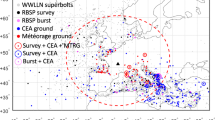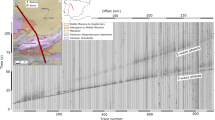Abstract
WE have carried out laboratory and outdoor studies to see whether radio observations with a tuned loop aerial can be used to monitor low energy electrostatic sparks and to separate spark discharges from corona-type discharges. Since corona is in general non-incendive in inflammable hydrocarbon air mixtures—but sparks may be incendive if sufficiently energetic—the observation of electromagnetic radiation from a discharge could form a simple technique for monitoring potential ignition hazards.
This is a preview of subscription content, access via your institution
Access options
Subscribe to this journal
Receive 51 print issues and online access
$199.00 per year
only $3.90 per issue
Buy this article
- Purchase on Springer Link
- Instant access to full article PDF
Prices may be subject to local taxes which are calculated during checkout
Similar content being viewed by others
References
Chubb, J. N., Proc. Second Int. Conf. on Static Electricity, Frankfurt (Main) April 1973 (DECHEMA, in the press).
Taylor, G. I., and McEwan, A. D., J. Fluid Mech., 22, 1 (1965).
Author information
Authors and Affiliations
Rights and permissions
About this article
Cite this article
CHUBB, J., ERENTS, S. & POLLARD, I. Radio Detection of Low Energy Electrostatic Sparks. Nature 245, 206–207 (1973). https://doi.org/10.1038/245206a0
Received:
Issue Date:
DOI: https://doi.org/10.1038/245206a0
This article is cited by
-
Improving RT-WEDM performance with a radio frequency signal monitoring system
The International Journal of Advanced Manufacturing Technology (2022)
Comments
By submitting a comment you agree to abide by our Terms and Community Guidelines. If you find something abusive or that does not comply with our terms or guidelines please flag it as inappropriate.



